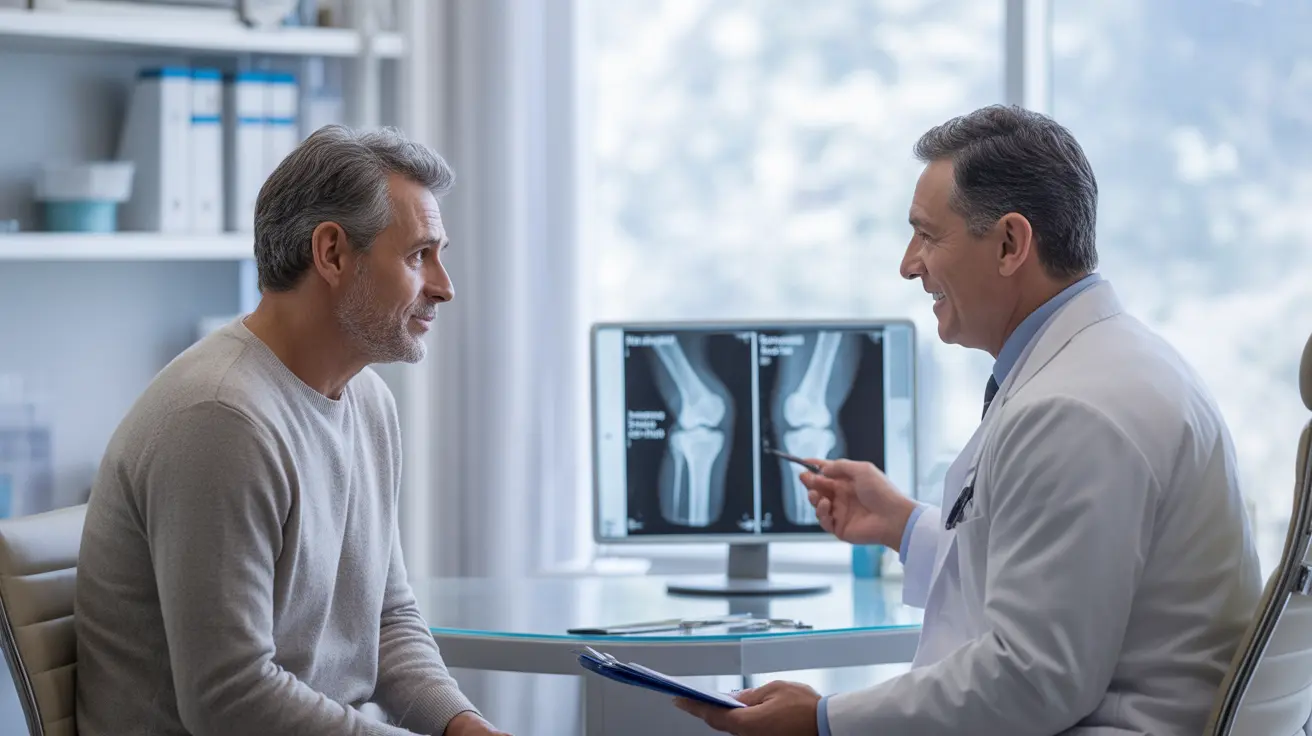When you're experiencing persistent pain in your bones, joints, or muscles, an orthopedic doctor can be your pathway to relief and recovery. These specialized physicians focus on diagnosing, treating, and preventing conditions affecting the musculoskeletal system, which includes everything from sports injuries to arthritis and bone disorders.
Understanding when to see an orthopedic doctor and what to expect during your visit can help you make informed decisions about your care. This comprehensive guide will walk you through everything you need to know about orthopedic care and treatment options.
When to Consult an Orthopedic Doctor
Recognizing when to seek specialized orthopedic care is crucial for your health and recovery. Common situations that warrant a visit include:
- Persistent joint pain lasting more than three months
- Difficulty performing everyday activities
- Sports-related injuries
- Decreased range of motion
- Chronic back or neck pain
- Bone fractures or suspected breaks
- Progressive joint or muscle weakness
Diagnostic Approaches and Testing Methods
Orthopedic doctors utilize various diagnostic tools and techniques to accurately identify musculoskeletal conditions:
Physical Examination
Your doctor will conduct a thorough physical assessment, checking your range of motion, strength, and stability while discussing your medical history and symptoms.
Imaging Studies
Common diagnostic tests include:
- X-rays for bone alignment and fractures
- MRI scans for soft tissue injuries
- CT scans for detailed bone structure analysis
- Bone scans for metabolic conditions
- Ultrasound for real-time imaging of muscles and tendons
Treatment Options and Approaches
Non-Surgical Treatments
Many orthopedic conditions can be managed without surgery through:
- Physical therapy and rehabilitation
- Medication management
- Joint injections
- Bracing or splinting
- Exercise and lifestyle modifications
Surgical Interventions
When conservative treatments aren't sufficient, surgical options may include:
- Arthroscopic procedures
- Joint replacement surgery
- Fracture repair
- Spinal surgery
- Soft tissue repair
Recovery and Rehabilitation
Recovery timelines vary significantly depending on the condition and treatment approach. Typical recovery periods range from several weeks for minor procedures to several months for major surgeries. Your orthopedic doctor will create a personalized rehabilitation plan that may include:
- Structured physical therapy
- Progressive exercise programs
- Pain management strategies
- Regular follow-up appointments
- Activity modifications
Choosing the Right Orthopedic Doctor
When selecting an orthopedic doctor, consider these important factors:
- Board certification and specialization
- Years of experience
- Success rates with specific procedures
- Hospital affiliations
- Patient reviews and testimonials
- Insurance coverage and accessibility
Frequently Asked Questions
- When should I see an orthopedic doctor for pain or injury in my bones, joints, or muscles?
You should consult an orthopedic doctor if you experience persistent pain lasting more than three months, have difficulty with daily activities, suffer a sports injury, or notice decreased range of motion. Immediate consultation is necessary for suspected fractures or severe injuries.
- What diagnostic tests do orthopedic doctors use to identify musculoskeletal problems?
Orthopedic doctors employ various diagnostic tools including X-rays, MRI scans, CT scans, bone scans, and ultrasound imaging. They also perform detailed physical examinations and review your medical history to make accurate diagnoses.
- What are the common non-surgical and surgical treatment options offered by orthopedic doctors?
Non-surgical options include physical therapy, medications, injections, and bracing. Surgical treatments range from minimally invasive arthroscopic procedures to major operations like joint replacements, depending on the condition and its severity.
- How long does recovery typically take after orthopedic surgery or other treatments?
Recovery times vary widely based on the procedure and individual factors. Minor procedures may require several weeks of recovery, while major surgeries can take months of rehabilitation. Your doctor will provide a specific timeline based on your case.
- What qualifications and training should I look for when choosing an orthopedic doctor?
Look for board certification in orthopedic surgery, completion of a residency program, any relevant fellowships in subspecialties, and significant experience treating your specific condition. Consider their hospital affiliations and patient satisfaction ratings as well.




